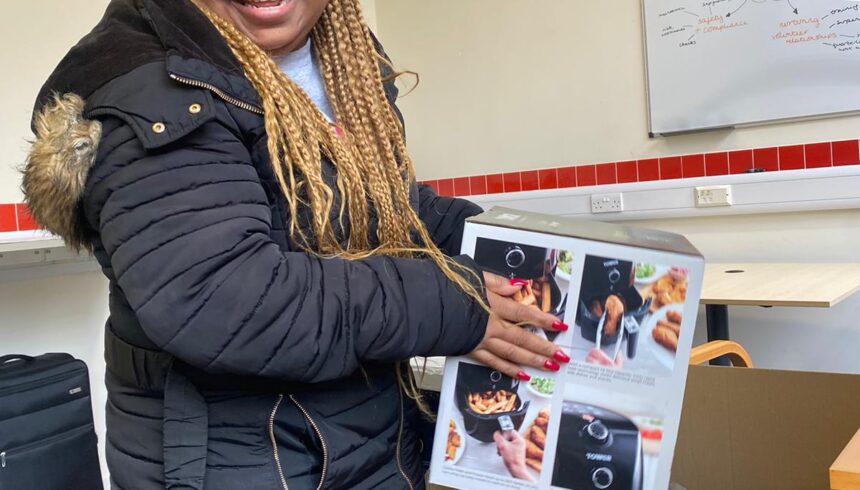Earlier this year, all refugee friends hosted in the At Home scheme and living at Amani and Emilie Houses had the opportunity to attend two ‘enlightening’ workshops facilitated by National Energy Action.
The first of these two-hour sessions gave an excellent overview of how gas and electricity work in the UK, including differences between distribution companies and energy suppliers or credit and prepayment meters. It also provided information on the benefits of being in the Priority Services Register along with many tips on what to do when you move in a new home or who to contact in case of a power cut or gas emergency. Several questions were asked on the benefits of the Priority Services Register, how to find the meter or what landlords’ responsibility are.
The second session focused on how to read meters and bills, saving energy and the health impacts of a cold and damp home. Our refugee friends were eager to learn new heating and insulation tips and happy to know which devices were more energy-efficient. All of them proved to be highly aware of the importance of small everyday actions and promised to share their new knowledge with their hosts and housemates.
Tessa, the lovely facilitator from NEA, wrapped up with a nice surprise: all the attendees were able to get either a slow-cooker or an air-fryer: an energy-efficient item for their future home…
“I was really surprised about the kettle: it consumes a lot of energy! So, for example, you don’t have to fill it up to the top when you want to boil water for a cup of tea: you measure the water you will need with your mug and then you put it in the kettle.”
We are so grateful to NEA for equipping our refugee friends with a better understanding of the energy system in the UK, and ways they can save money now and into the future. And, of course, for the impact this awareness will have on the sustainability of our Accommodation Project.
“I learned so many things I didn’t know: the names of the companies, how to read a meter, how to consume less electricity, and how to avoid mould. It was really good”
Learn more about the JRS UK’s accommodation work: www.jrsuk.net/at-home-hosting-scheme



